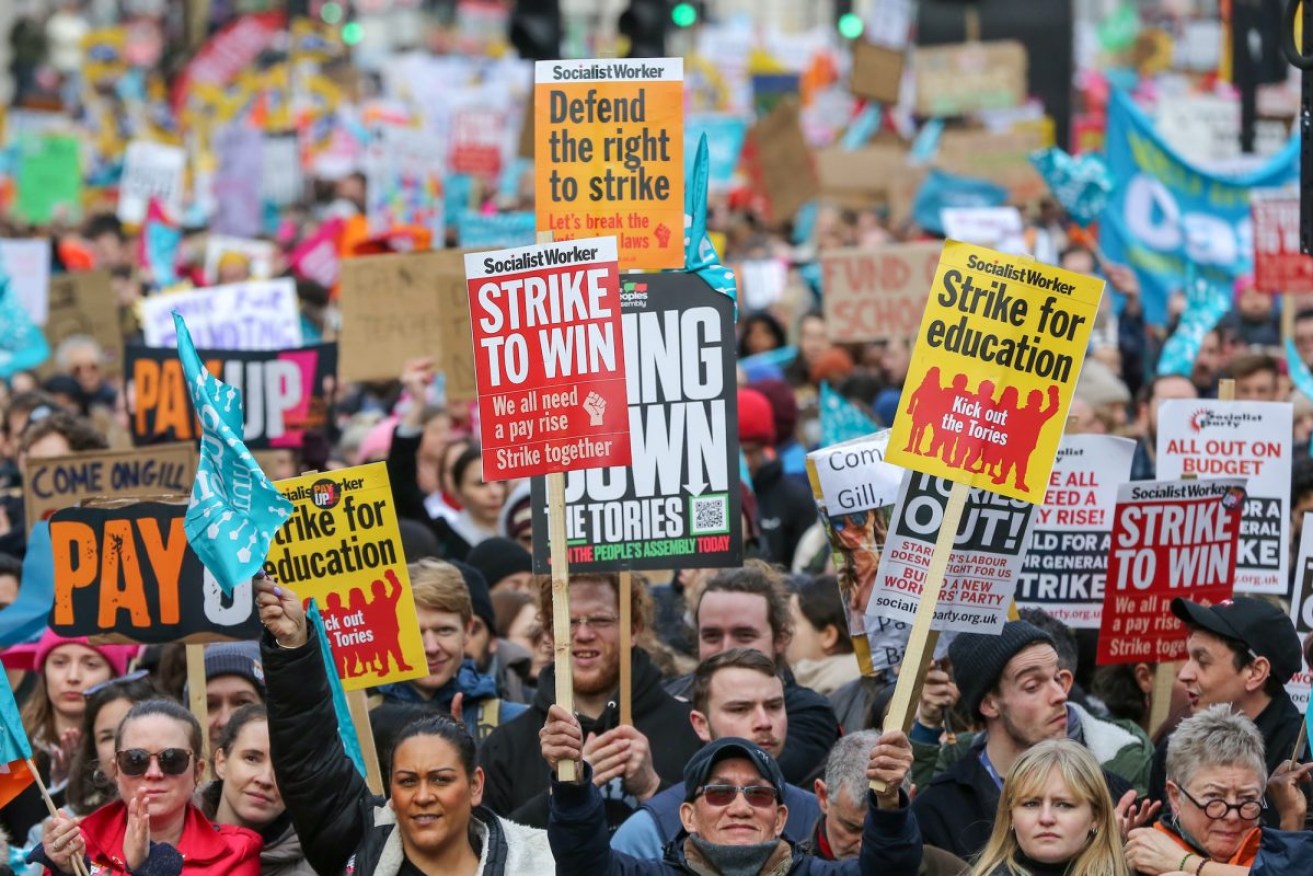British strike biggest in a decade
Up to half a million teachers, civil servants, train drivers and university lecturers have walked out over pay and conditions in the largest coordinated strike action in Britain in a generation.

Tens of thousands of members of the National Education Union (NEU), students and members of other trade unions marched through central London and rallied outside Downing Street on Britain's biggest strike in a decade. Photo: Steve Taylor/SOPA Images/Sipa USA
The mass walkouts have caused widespread disruption across the country shutting schools and halting most rail services, with the military put on standby to help with border checks.
About 300,000 teachers are expected to strike on Wednesday, the biggest group involved, as part of wider action by 500,000 people, the highest number for at least a decade.
Mary Bousted, General Secretary of National Education Union, told Reuters that teachers in her union felt they had no choice but to strike as declining pay meant high numbers were leaving the profession, making it harder for those who remain.
“There has been over the last 12 years a really catastrophic long term decline in their pay,” she said outside a school in south London.
“None of the people behind me want to be on strike today but they are saying, very reluctantly, that enough is enough and that things have to change.”
With inflation running at more than 10 per cent – the highest level in four decades – Britain has seen a wave of strikes in recent months across different sectors, including health and transport workers, Amazon warehouse employees and Royal Mail postal staff.
Education minister Gillian Keegan stuck to the government’s position on Wednesday. It has taken a hard line with public sector workers, telling them that large wage increases will only fuel inflation.
“What we cannot do is give inflation busting pay rises to one part of the workforce and make inflation worse for everybody. That’s not an economically sensible thing to do,” she told the BBC.
So far the economy has not taken a major hit from the industrial action with the cost of the strikes in the eight months to January estimated by the Centre for Economics and Business Research at 0.1 per cent of expected GDP.
But the strikes might be having a political impact on Prime Minister Rishi Sunak’s government.
His Conservative Party trail of the opposition Labour Party in polls and surveys indicates the public thinks the government has handled the strikes badly.
Also on strike on Wednesday are 100,000 civil servants from more than 120 government departments, and tens of thousands of university lecturers and rail workers.
There are also rallies planned for later in the day to protest against a new law to curb strikes in some sectors.
Next week, nurses, ambulance staff, paramedics, emergency call handlers and other healthcare workers are set to stage more walkouts, while firefighters this week also backed a nationwide strike.
Those striking are demanding above-inflation pay rises to cover rocketing food and energy bills that they say has left them stressed, feeling undervalued and struggling to make ends meet.
-AAP




